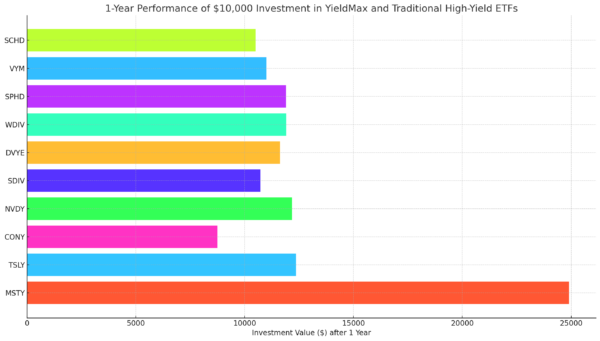Use Insider Buying to Identify Top Dividend Payers
Today, Income Expert Marc Lichtenfeld examines the recent insider trading scandal — that’s insider buying or selling — surrounding Senator Richard Burr. He allegedly sold shares in response to insider knowledge about COVID-19’s likely impact on stocks he owned.
The truth is, people with insider knowledge about the market often use that information to enrich themselves through insider buying or selling. But most of the time, if this trading is done legally, there’s actually a way that you can track their behavior.
Me: Can this Congress be any more unlikable?
Sen. Richard Burr: Hold my beer.
If you’re unfamiliar with the “hold my beer” meme, it’s used to suggest that a person is about to one-up whatever you’re talking about.
In late February, as the coronavirus was exploding and the country was shutting down, the federal government was pretty darn unlikable (nothing new there). And then the story broke that various senators and representatives sold stock after being briefed about how bad the virus was going to be.
Richard Burr, a U.S. senator from North Carolina, sold 33 stocks that were worth between $628,000 and $1.7 million just after he wrote an opinion piece for Fox News saying that the U.S. was better prepared than ever to face the pandemic. As chairman of the Senate Select Committee on Intelligence and author of the Pandemic and All-Hazards Preparedness Act, Burr knew darn well that wasn’t the case. If it were, he most likely wouldn’t have dumped his stock. And he’s just one example of insider buying or selling in the U.S.
If you’re like me, you find it infuriating when people in the know use their privileged access to information to enrich themselves like Burr did. But what if you were almost immediately made aware that Burr sold his stock after a briefing on the virus? Would you have perhaps followed his lead?
While you can’t do that with two-faced politicians, you can follow CEOs, chief financial officers (CFOs) and other corporate insiders quite easily.
Following the Signs of Insider Buying
Executives and directors must file documents with the Securities and Exchange Commission within two days of buying or selling their companies’ securities. It’s important to understand that insiders may sell for a wide variety of reasons. They may know that their company is going to go through difficult times, they may have college tuition to pay for, or they may need to diversify their holdings since stock may be a large part of their compensation.
But there’s primarily one reason for insider buying, it’s primarily for one reason: Insiders expect the stock to go higher.
Some insiders have programs where they buy or sell stock on a regular basis. They may buy or sell a certain dollar amount or number of shares every week, month or quarter.
What’s especially meaningful is when insiders, especially more than one in the same company, buy stock in the open market. That suggests confidence in the company’s prospects.
Insider Buying at These Dividend Payers
Those of you who know my work know that I am all about owning strong dividend payers for the long term.
So I took a look at which dividend-paying companies had large amounts of insider buying since the pandemic began as a potential signal for which companies may rebound when we emerge from the crisis.
Exxon Mobil (NYSE: XOM). Though oil is trading near its lowest level in 18 years, two senior vice presidents snapped up nearly $1 million and $1.1 million worth of Exxon’s stock, which has a generous 8.6% dividend yield.
Kar Auction Services (NYSE: KAR). The CEO and CFO bought $1 million and $900,000 worth of stock, respectively. The stock yields 5.8%.
Prosperity Bancshares (NYSE: PB). This Houston, Texas-based bank yields 3.8%. Despite the virus and low interest rates, the vice chairman bought nearly $1.3 million worth of stock, and the senior chairman and CEO bought $650,000 worth.
These executives and directors have confidence that their companies will thrive and their stocks will eventually move higher. That’s as good a place as any to begin your own research into great stocks to buy during this downturn.
If you enjoyed this article on insider buying, sign up for the free Wealthy Retirement e-letter below. By signing up, you’ll receive useful tips and strategies right in your inbox daily. Whether you’re a beginner or experienced investor, Wealthy Retirement is here to help you live financially free.
About Marc Lichtenfeld
Marc Lichtenfeld is the Chief Income Strategist of Investment U’s publisher, The Oxford Club. He has more than three decades of experience in the market and a dedicated following of more than 500,000 investors.
After getting his start on the trading desk at Carlin Equities, he moved over to Avalon Research Group as a senior analyst. Over the years, Marc’s commentary has appeared in The Wall Street Journal, Barron’s and U.S. News & World Report, among other outlets. Prior to joining The Oxford Club, he was a senior columnist at Jim Cramer’s TheStreet. Today, he is a sought-after media guest who has appeared on CNBC, Fox Business and Yahoo Finance.
Marc shares his financial advice via The Oxford Club’s free daily e-letter called Wealthy Retirement and a monthly, income-focused newsletter called The Oxford Income Letter. He also runs four subscription-based trading services: Technical Pattern Profits, Penny Options Trader, Oxford Bond Advantage and Predictive Profits.
His first book, Get Rich with Dividends: A Proven System for Earning Double-Digit Returns, achieved bestseller status shortly after its release in 2012, and the second edition was named the 2018 Book of the Year by the Institute for Financial Literacy. It has been published in four languages. In early 2018, Marc released his second book, You Don’t Have to Drive an Uber in Retirement: How to Maintain Your Lifestyle without Getting a Job or Cutting Corners, which hit No. 1 on Amazon’s bestseller list. It was named the 2019 Book of the Year by the Institute for Financial Literacy.






